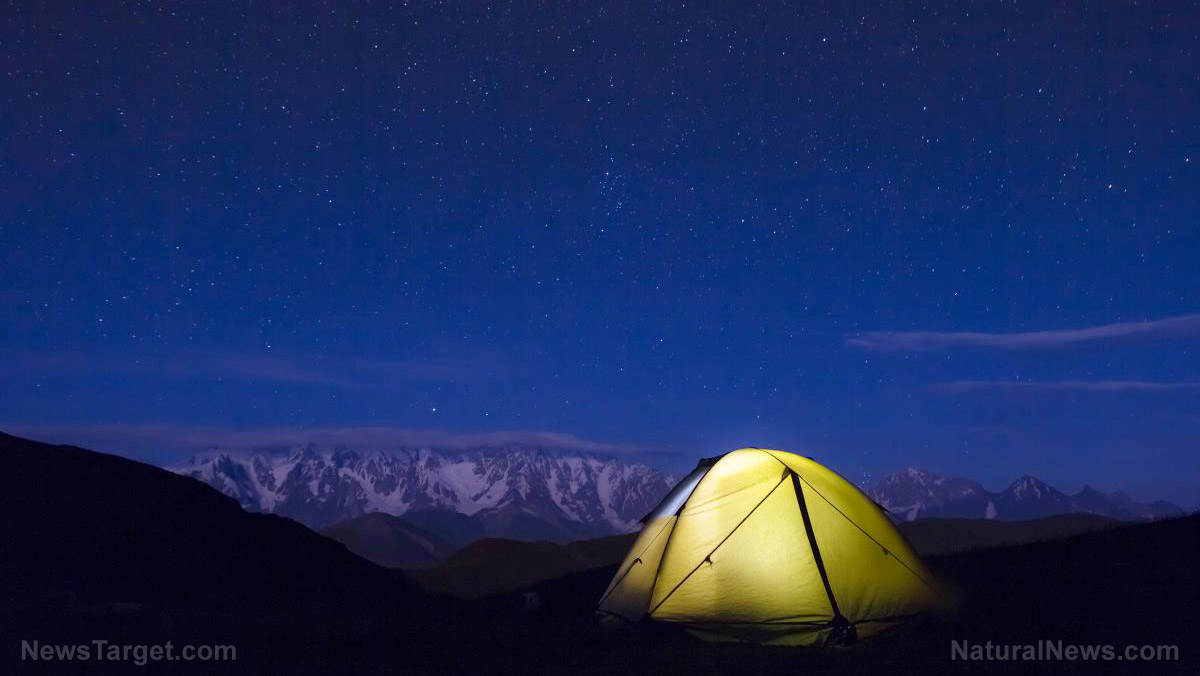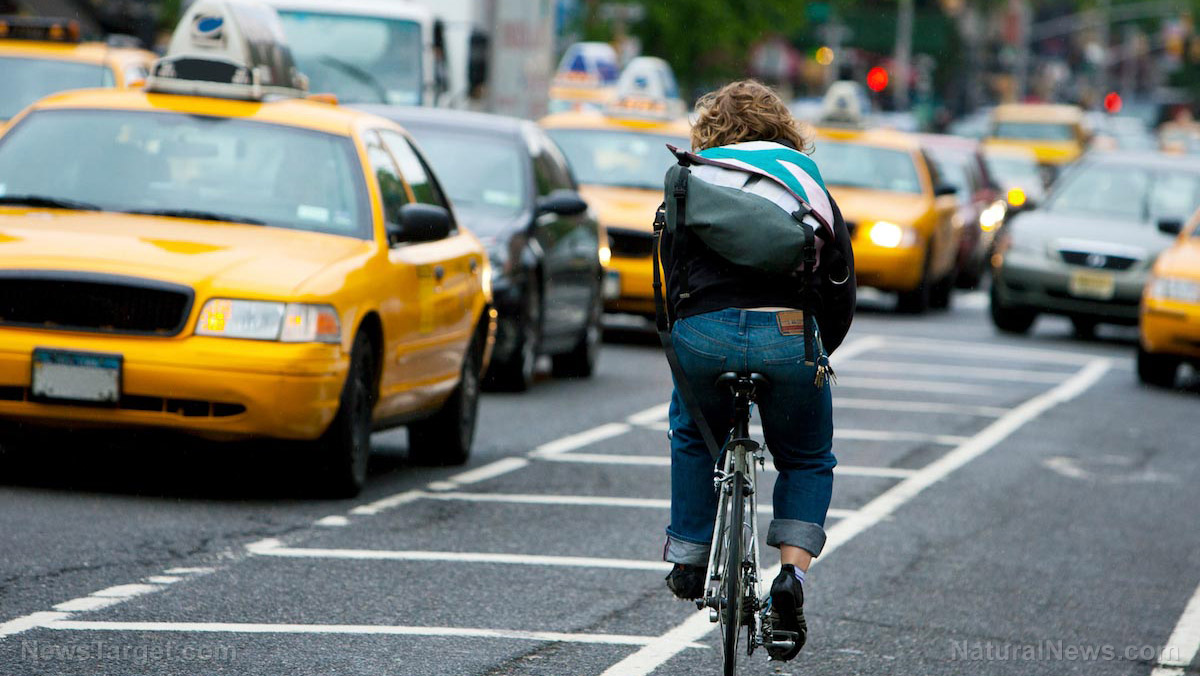
Advertisement
Camping is great way to have fun with friends and family while breathing in some fresh air and immersing yourself in nature. That said, camping isn’t exactly a walk in the park. If you want your camping trip to be as problem-free as possible, there are many things that you must prepare. (h/t to TheSurvivalistBlog.net)
Camping essentials
The stuff you take with you on any camping trip can make or break the entire experience. Many items recommended often serve more than one purpose, so it’s best to have as many of these as you can bring to make yourself comfortable. Some camping gear can definitely be improvised, but the list below caters to the average family going out on a camping trip for about a week – meaning a few of these items are something a lone survivalist can definitely live without. (Related: Camping: A great way to practice how to live after SHTF.)
- Something to sleep in. An average camper enjoys sleeping comfortably. While you can sleep on a rock or up in a tree branch, they aren’t the most comfortable places to sleep in. You can go with a simple sleeping mat with a camping blanket or go full-on traditional camping and pack a comfy sleeping bag. If you want to glamour up your camping experience and there is enough space, you can even consider foam mattresses. Throw in a pillow for good measure for a truly good night’s sleep.
- A tent. Sleeping under the stars may seem like the best way to experience camping, but bugs and other creepy crawlies would make you wish you had a tent, not to mention being exposed to the elements can affect your overall experience. There are tents built to withstand certain weather conditions, so you choose which one best fits the climate of your camping area.
- Personal toiletries and a change of clothes. Things can get pretty messy when out in the wild, so having extra clothes and your own set of toiletries can keep things sanitary around the campground.
- Water and food. The amount of sustenance you need to pack depends on how many people you are with and how long you are staying. You can bring along a large container of water that you can refill from a nearby spring or tap. Not all campsites can offer the luxury of having their own cafeteria and tap water, so it’s better to be prepared. Consider bringing some canned goods to save yourself the trouble of spending hours on meal preps.
- Salt and pepper. By packing your own salt and pepper, you can elevate any camp dish, no matter how simple they are.
- Water purification system. It’s important to prevent drinking contaminated water. A solution of 1 teaspoon of bleach per 5 liters of water can kill most pathogens with ease. Pack a small container filled with enough household bleach for the entire trip.
- Flashlights. It can get really dark out in the woods, so having a flashlight on hand can be a lifesaver. Choose a versatile flashlight that can be used for signaling, lighting the way and even identifying threats.
- General-purpose knife. Having a good, versatile knife can help you with different tasks, such as cutting objects, preparing food or even repairing things.
- Drinking container. Bring a lightweight, stainless steel water container with a screw top so you can easily access your drinking water. Avoid bringing plastic bottles as they can easily break, in addition to being bad for the environment.
- Kitchen equipment. What good is all your food if you don’t have anything to cook and eat them with? Pack a mess kit with various utensils alongside a stainless steel dish to act as a plate for eating and meal prep.
- Matches (in a waterproof bag) and a lighter. While there are crude ways to start a fire, make your experience significantly easier by packing a set of matches kept inside a waterproof bag, as well as a lighter.
- Tomahawk or ax. Just like having a versatile knife, having a small ax on hand can help you perform tasks where a knife will be insufficient, like chopping wood or slamming down tent pegs.
- First aid kits. Camping may be all fun and games, but people can still get injured. Having a first aid kit on hand (as well as the knowledge to treat minor injuries) can be a huge boon for any camping group.
- Fold-up camp chairs. If you have the space to take some with you, a fold-up camp chair can help you save energy from sitting on the ground or on logs all the time.
- Fold-up table. Taking a single table won’t help you keep all your stuff off the floor, but it would at least mean food preparation doesn’t have to be done on the ground. You can also gather around the table in the evening for some drinks and snacks, or even play board games on it.
While there are plenty of items that can be considered non-mandatory, the things on the list above can help make camping a much more comfortable experience for everyone involved. Find similar stories on camping gear at SurvivalGear.news.
Sources include:
Advertisement
Advertisements
















